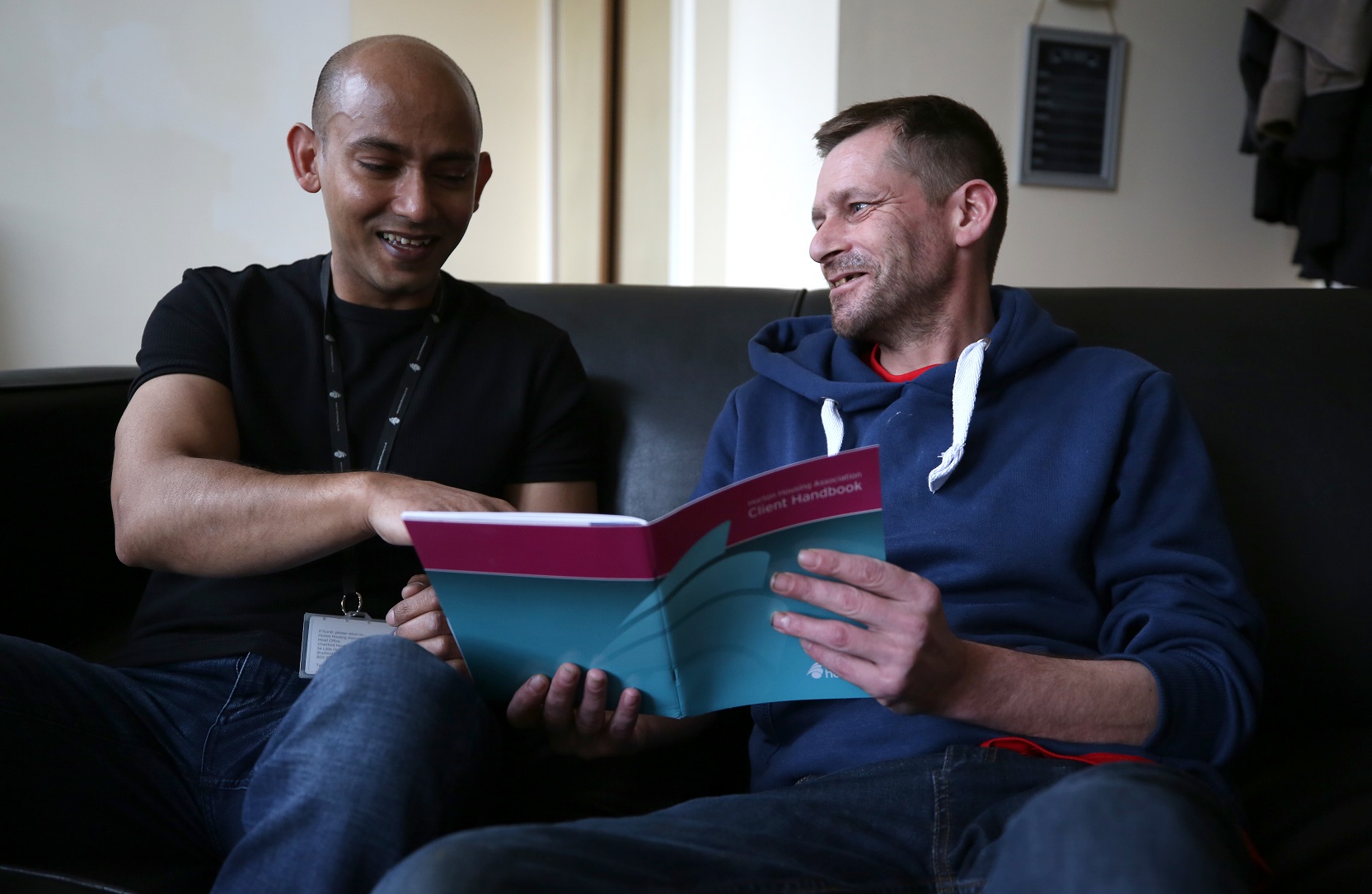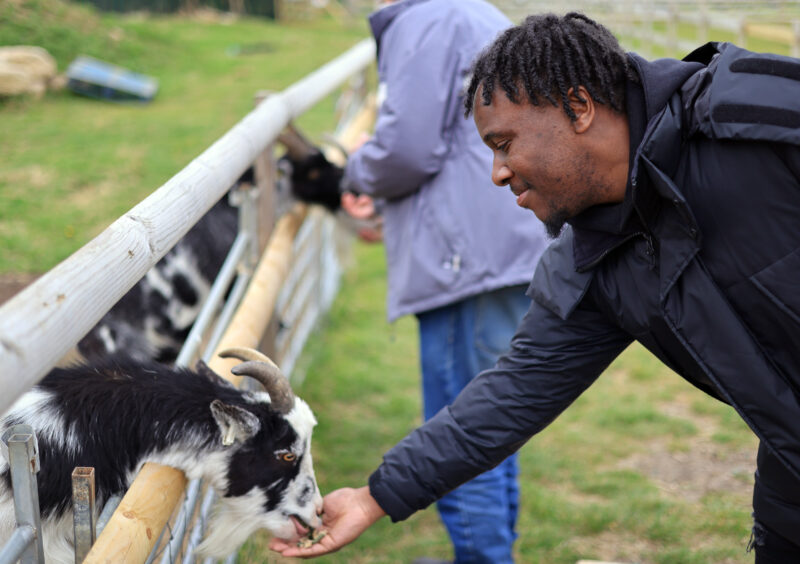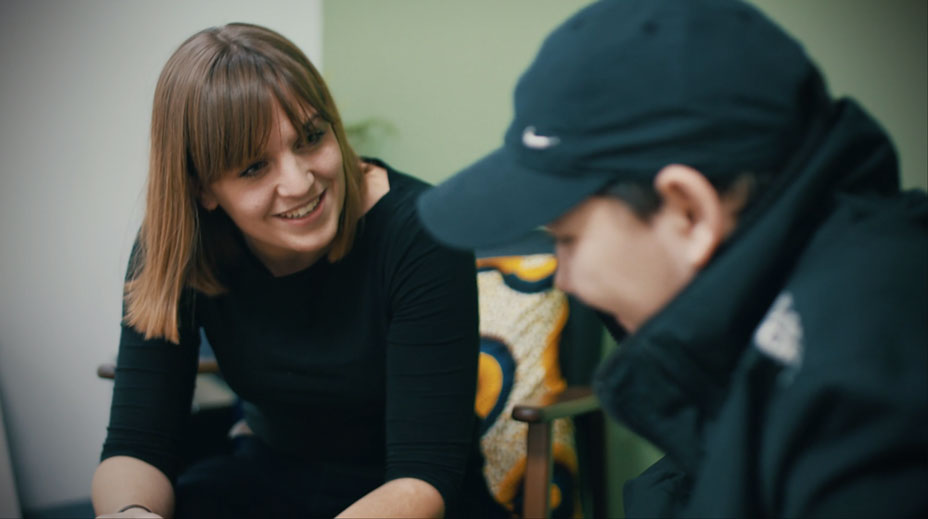03.05.2022 | Case Study
In practice: Housing and employment in Northamptonshire and West Yorkshire

How a homelessness charity radically transformed its approach to focus on people’s strengths
In 2011, Mayday Trust, a pioneering charity which works with people going through tough times, decided that there was a fundamental problem with the way it was operating. “Systems were not working for people who were homeless,” explains Pat McArdle, Mayday’s Chief Executive.
“Systems reinforced helplessness, hopelessness and exclusion from community among people experiencing homelessness. The humanity and individuality of people’s lives was getting lost. And the outcomes were not good enough. Too many people were either trapped in the system or, after engaging with it, became homeless again with a feeling of ‘yet another failure under my belt’.”
During a series of over 100 “exploratory conversations” that Mayday held with those experiencing services, the charity found that much of the homelessness “industry” was impersonal, deficit-focused, and actually created dependency. The answer was to stop focusing on, diagnosing and medicating people’s weaknesses, and instead start focusing on their strengths. In order to help people recognise and build on their capabilities, Mayday had to take a much more personalised approach. This included giving front-line staff the ability to make small discretionary grants – known as ‘personal budgets’ – to support that individual’s progress in any way they saw fit. The objective was not to create a situation of long-term dependency on the state, but help people transition into independence.
Dave, who would normally have been classified as ‘a homeless drug user’, exemplifies Mayday’s transformed approach. The traditional system approach would have been to find a place for Dave in expensive supported housing, apply for enhanced payments from Government indefinitely, and offer him drug/alcohol rehabilitation courses. Mayday’s previous traditional government contract even stipulated a percentage of people who must be sent to rehabilitation courses each year. And Dave would have needed to continue confirming his ‘support needs’ every few months, in order to keep his home, and for the various organisations ‘treating’ him to receive their funding. Instead, under Mayday’s new approach, Dave agreed to meet a coach for a coffee and a conversation about cars.
“The coach didn’t talk about his drug use or that he was living in a tent. We never said Dave had to attend sessions with a coach. We gave him a choice and control. His coach worked to empower Dave to get in contact with his passions – who he was, what he wanted. Dave applied for a personal budget and got a car kit.”
Instead of trying to diagnose and medicate a problem (which was actually a coping mechanism, rather than a root cause), Mayday tried to understand Dave’s potential, and help him refocus on it. This approach has transformed Dave’s life, McArdle explains. “That Christmas, Dave went home to his family who he hadn’t seen in 12 years. Within eight months, he had accessed his own flat where he has lived for the last two years. More recently, through his attendance at a car rally, he met someone at BMW, who encouraged him to apply for a position there. He is now working for them in his dream job. Over time, Dave realised what was possible and made it happen.”
“The answer was to stop focusing on, diagnosing and medicating people’s weaknesses, and instead start focusing on their strengths”
This story is typical of the charity’s new approach. They no longer make people undergo assessments to count ‘support needs’, in order to justify deficit-linked funding from Government. “We meet people briefly, tell them what we are about and give them the option to get involved. We don’t talk to people about their ‘issues’,” explains Pat McArdle. “Rather, we begin conversations which are about just getting to know the person. We meet people wherever they want to meet us, and talk about whatever they want to talk about.”
“We believe that the fundamental solution to homelessness will not come from psychiatry, sociology, psychology or the housing sector, although all the thinking in that area is helpful. Instead, change will come from listening to people, reflecting, getting to know people’s contexts, understanding and always knowing that we are all different. So let’s keep it person-led, not system-led.”
This pioneering ‘asset-based’ approach has required Mayday to make some brave decisions. Initially, it had to let go of some traditionally defined contracts, lose staff and shrink in size. But ultimately, the approach has proved to be so popular that Mayday developed an academic qualification in their Personalised, Transitional and Strengths-based (PTS) approach, to assist other organisations wanting to follow suit. It has also launched an initiative called the New System Alliance, which is supporting others to adopt their own PTS approaches.
“The fundamental solution to homelessness will not come from psychiatry, sociology, psychology or the housing sector… Change will come from listening to people”
In West Yorkshire, for example, it is working with an organisation called Kirklees Better Outcomes Partnership (KBOP), a collaboration between eight local charities that is seeking to help 6,000 people to secure or maintain suitable accommodation, improve their health and well-being, and strengthen the skills they have to live independently. All eight of KBOP’s charity partners have now adopted Mayday’s PTS approach, and it is yielding impressive results. Since September 2019, KBOP has supported over 3,700 people to sustain their accommodation, and helped many of those into education or employment.
Sarah Cooke, Managing Director of KBOP, explains her experience of studying for the PTS qualification: “The PTS course gave me the opportunity to explore the impact of relationships, trust, assumptions, and power in commissioned services. As an introduction, the student is asked to forfeit control and share personal information about their life as though they were accessing a traditional housing service. You must describe your deficits – perhaps you drink too much, have been in trouble with the police over speeding offences etc. The idea is to show people what it’s like to interact with these services, and to be defined by their weaknesses. People immediately learn how a deficit-based approach can be disempowering, and better understand the importance of opting for strengths-based interactions instead.”


